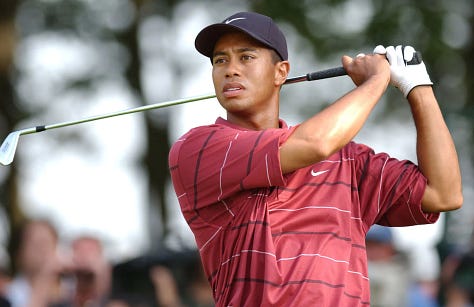Envy is Dumb
The over analysis on the stupidities of a deadly sin
“Envy is a really stupid sin because it’s the only one you could never possibly have any fun at. There’s a lot of pain and no fun. Why would you want to get on that trolley?”
Charlie Munger
As I think more and more about the different projects to pursue, cities to live in, and the infinite spectrum of experiences to capture, I am increasingly faced with the irrational seduction of envy. Even though I fundamentally know how stupid envy is, I can’t help but occasionally feel its symptoms of insecurity, stress, and overall dissatisfaction before being inevitably cured with a tonic cocktail of gratefulness and just sheer busyness. So here I am, writing out my overly thought thoughts on why envy is dumb in a bid to tattoo it into the wrinkles of my brain.
Comparison is the thief of joy. Let’s over analyze that.
The Global Market Place of Envy
To begin, my battles with envy will always result in inevitable defeat. Even in the microcosm of the daily world I interact with, there is always someone in my immediate vicinity who has attributes I can be envious for. Fitness is a glowing example of this. After dedication to a powerlifting program engineered to peak my strength for a personal record 405lb squat on a specific Sunday planned 16 weeks in advance, someone casually strides into the barbell rack next to me and squats 450lb for reps in loosely fit basketball shorts and running shoes. For me 405lb is an achievement and for him it’s simply a warm up.
Well at least I can protect my ego and suppress the symptoms of envy by rationalizing he’s almost double my body weight and resembles a human personification of a bulldozer. But that cannot protect me from the global market place of envy, which extends beyond the mirrors adorning the humble gym walls. My personal expectations are no longer limited by personal experience; the world is ever so large. The last defensive bastion against envy is crumbled by a 21 year old 125lb girl squatting 414lb on the world’s biggest powerlifting stage (Jade Jacob of France). In a brief 10 seconds, my own personal achievement, fuelled by a decade worth of male testosterone, can be reduced to an utter pittance.
Simply put, there will always be sources of envy; battles with envy to be made and to be lost. The outliers are not longer a mythical class of revered individuals only seen in brief newspaper clippings, but immediately accessible and ordinary people in the very flesh and blood that makes them human. Their strengths can be indefinitely looped and gawked at.
There is always someone out there who’s “better.”
Asymmetric Extrinsic Strengths and Intrinsic Weaknesses
Even when the global market place is ignored, there is an asymmetric quality in how I view myself against the rest of the world. Given that I’m the only person privy to my internal thoughts, I am ever so aware of the weaknesses that coat the textures of my thinking process, among of which contain indecisiveness, lapses in conviction, and propensity for regret. But when I observe others- whether that be online or in person- it seems no one else struggles with these weaknesses. In fact, it seems no one else struggles with anything.
To quote Modern Wisdom’s Chris Williamson: “Our inner experience of ourselves and our external observation of other people are so asymmetric that everyone else looks like a rational agent. And, we look like a wavering idiot permanently.” And since I look at myself as if I’m a wavering idiot, I have reason to envy everyone else who seem to me as rational and put together.
The common adage “the grass is greener on the other side” follows this similar line of thinking as well, in which the two poles of familiarity and unfamiliarity reap pessimism and optimism respectively. On the one side, I am very attuned to my character traits, past experiences, and current state; familiarity draws focus on the negatives- those are the very things I’m obsessively looking to improve upon. Meanwhile, unfamiliarity towards the lives of other people offers the benefit of the doubt, which tilts a should-be equal consideration of upside and downside to almost purely upside. Consequently, I begin to compare apple and oranges- the downsides in my life against the upsides in others’ lives. Thus, the outcome of envy from comparison is no surprise.
As sources to combat this lopsided optimism, the upsides to my life have subconsciously mitigated focus as well. In one dimension is the normalization of happiness after large spikes and troughs rippled from significant events. Without deliberate mindfulness (ala my previous article), these positives are often slowly forgotten after initial appreciation which originally arises from comparative contrast with prior circumstance. Familiarity also plays a role in this. Because I am so familiar with my life’s upsides and my personal strengths, I no longer see them in a positive light- I just don’t see them at all. My strengths, such as high introspection and high burnout capacity, no longer appear to be strengths, but just normal attributes to the lived experience.
As an aside, envy is almost exactly the same as regret. Both envy and regret have infinite sources of inspiration (social media vs past life decisions), may invoke deep feelings of burden and inadequacy, and draw away from the present experience. Their difference seems to lie in the origin of where they derive from- envy from other people and regret from personal decision.
The Cost to be the Source of Envy
In the same vein of the asymmetric view of my clandestine flaws and everyone else’s visible strengths and rational behaviour, I am not privy to the cost paid for the envied to become the envied in the first place. Everything has a price. Ambition and achievement- the inspirations for envy- are no different.
Consider some icons in our world:



Tiger Woods, arguably the greatest golfer of all time, obsessively trained golf from the age of 2 while being willingly racially abused by his father who pushed his son harder (Tiger Documentary)
Lee Alexander McQueen, among the greatest British fashion designers of all time, worked to design 10 collections per year for his eponymous label and Givenchy which contributed to his reliance on drugs, increasingly erratic behaviour, and declining mental health. (Definitely recommend Gods and Kings and the McQueen documentary)
Avicii, an icon in 2010s EDM, performed at 250 shows per year while suffering from severe anxiety which was compensated with excessive alcohol consumption causing acute pancreatitis, subsequent opioid addiction, and surgery. High pressure from management and fans post retirement from touring were cited as key reasons for suicide (Avicii: True Stories Documentary)
And yes, I admit that these are hand picked and oversimplified examples; however, that does not invalidate the visible and invisible immense costs that these people pay to become these larger then life figures worshiped by society. Outsized returns require excess internal suffering and work ethic. Ironically, workaholism is the only addiction that society praises, produces positive outcomes, and is not often seen as a cost.
Perhaps it’s unrelatable to refer to the greatest; why not lessen the scope to something more familiar. What about the high performers in the immediate vicinity- those who obtain outsized bonuses, are further in their careers, have lower body fat percentages, and autonomous lives? What costs have they paid to reach the point they are currently at? What costs have they paid that I haven’t paid yet? Would I even be willing to pay those costs if I knew how much those costs were? Would I be willing to pay those costs if the outcome is uncertain?
Jensen Huang, the founder and CEO of Nvidia, answered this exact question while having the certainty of great success and still said he wouldn’t do it again:
Those questions about cost are the ultimate foil to envy. Why should I ever envy someone's life if I don’t know the full extent of how that person arrived into that position in the first place? And how foolishly ignorant would I be if I were to ever overlook the very meaningful and substantial sacrifices that makes achievements so enviable?
The Silver Bullet
After all this over-thinking of why envy is dumb (I could have left it at Charlie Munger’s quote in the first place), if there was any silver bullet, it would manifest itself in one simple word: gratefulness.
Oh, but is it easier said than done. Scrolling through social media must be accompanied with an active restraint to limit inspiration from turning into comparison.Witnessing the success of others must come with a profound respect of the expenses driven. And ultimately, internal critique must be balanced to motivate drive while still ideally maintain healthy amounts of self esteem.
Difficult solutions for a stupid flaw indeed.

